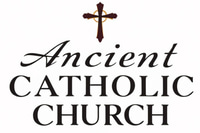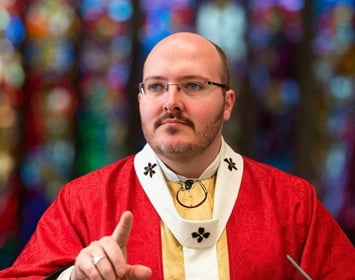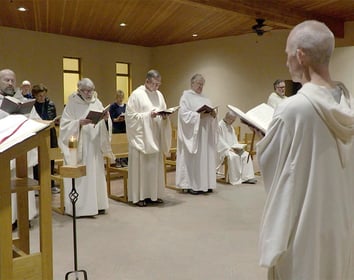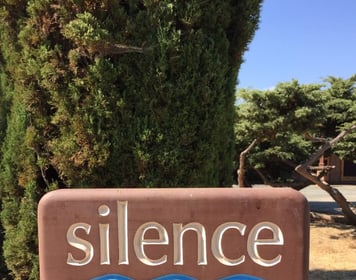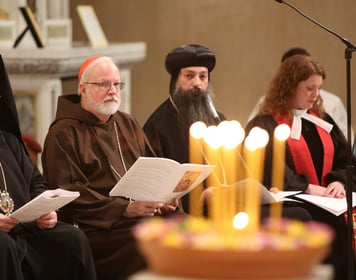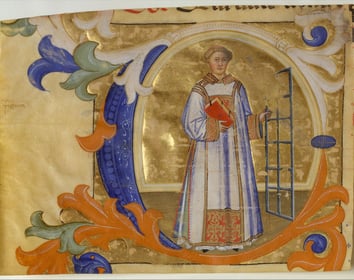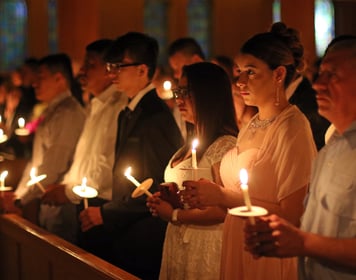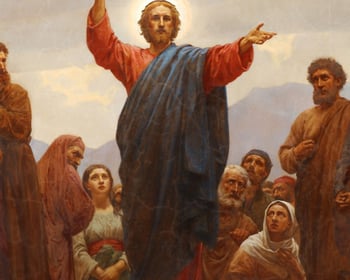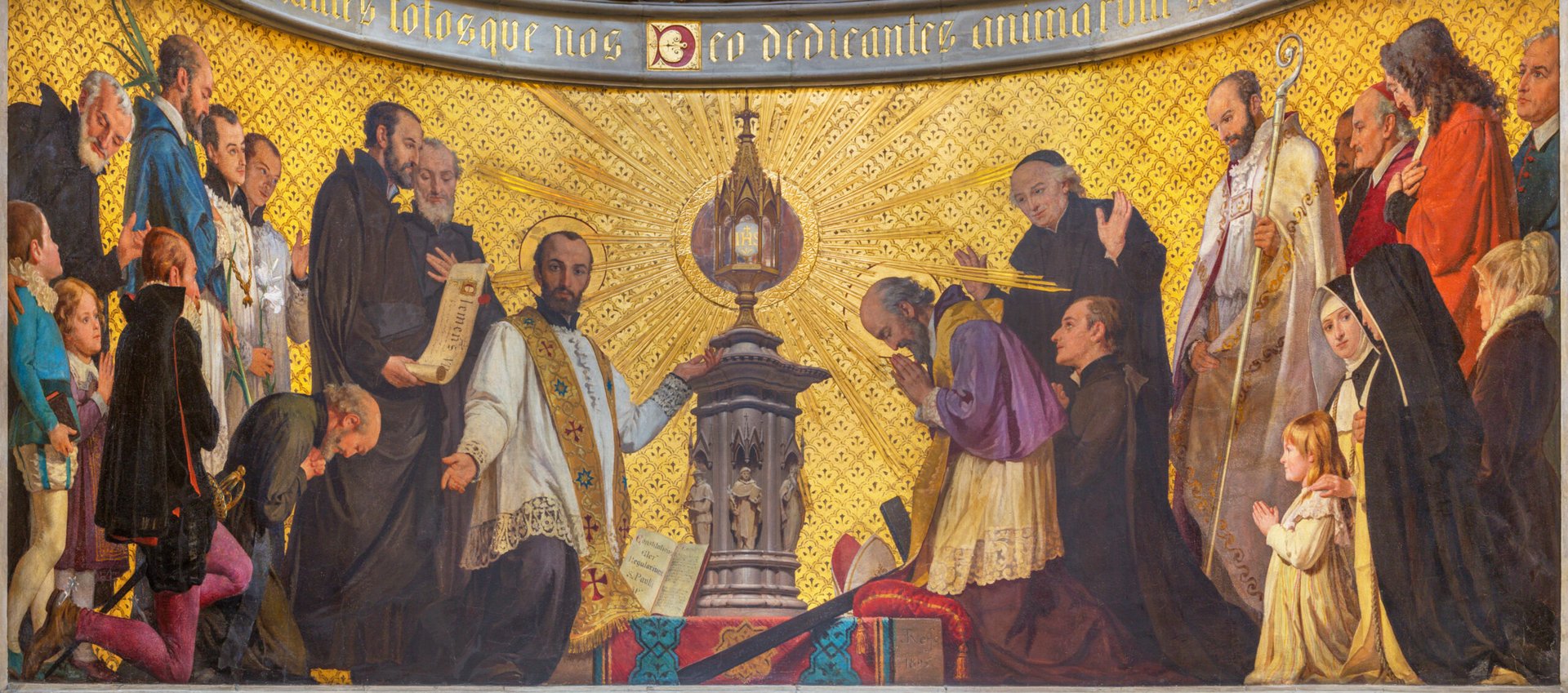
Ordo of the Ancient Catholic Church
The Ordo, with its detailed guidance and rich symbolism, is more than a liturgical manual—it is a spiritual roadmap that directs every believer toward a deeper, more enriched encounter with God.
Liturgical Ordo
The Ordo is a vital resource within the Ancient Catholic Church, offering guidance and structure to clergy, laity, and parish communities alike. Rooted in the church’s rich heritage and deep commitment to spiritual growth, the Ordo serves as a liturgical roadmap, fostering unity, devotion, and understanding across our church community.


An Invitation to the Sacred Order
The Ordo is much more than a set of instructions—it is a comprehensive guide that weaves together theology, tradition, and pastoral care to shape the rhythm of liturgical life. It offers a structured framework that resonates with every believer, providing clear direction for worship and personal devotion. Rooted in centuries of sacred practice, the Ordo invites the faithful to journey through daily meditations, special observances, markedly distinct seasons, significant sacramental rites, and an artful use of liturgical colours that together create an immersive spiritual experience.
The Ordo is carefully curated to foster an environment where ancient traditions meet modern devotion, guiding believers to encounter the divine anew each day.
Daily Mass Readings
At the heart of the Ordo are the Daily Mass Readings—carefully chosen scriptural passages meant to escort the faithful on a daily pilgrimage through God’s Word. Every day, these readings offer fresh insights that speak directly to the soul, inviting reflection on the profound mysteries of our faith. The daily readings are not randomly chosen; they follow a liturgical cycle that has been refined over centuries to ensure a comprehensive exploration of the Bible’s narrative.
Each passage is selected to highlight a particular facet of God's message, ranging from the call to repentance to the promises of divine mercy. In a busy world, these readings serve as a daily reminder of the importance of pausing to reflect on Scripture, grounding us in the enduring truths that have inspired countless generations before us. Whether you find yourself drawn to the comforting psalms or the urgent proclamations of the prophets, these passages guide you through different seasons of spiritual reflection and personal growth.
For many, the daily reading is a quiet moment of connection—a time set apart to contemplate the living Word, preparing the heart and mind for the celebration of the Eucharist. With each recitation, the faithful are invited to internalize these messages, allowing the words to gently reshape their understanding of life and their relationship with God. In doing so, the daily Mass readings become more than ritual recitations; they transform into personal meditations that elevate everyday moments into opportunities for divine encounter.
Historical tradition has always placed Scripture at the centre of worship. The faithful have found solace, challenge, and inspiration through the regular engagement with God’s Word, making the daily readings an essential component in the development of a resilient and thoughtful spiritual life. As believers immerse themselves in these passages, they not only reiterate the timeless truths of Scripture but also ensure that these truths continue to live and resonate within the modern context of personal and communal prayer.
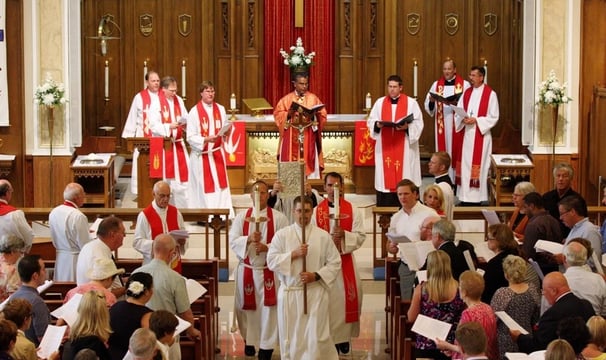



Special Observances
The Ordo’s guidance extends to Special Observances—distinct moments set aside in the liturgical calendar to commemorate important events, believe in communal traditions, and honour the lives of saints whose examples continue to inspire. These observances include feast days, holy days of obligation, and the remembrance of saints. Each occasion is imbued with a historical and spiritual significance that marks it as a time for both public celebration and personal reflection.
Feast days, for instance, are not merely dates on a calendar; they are vibrant reminders of God's intervention in human history. They celebrate the lives of key figures whose stories are interwoven with the mystery of salvation. When you join in a feast day observance, you are not only inviting a moment of joy into your practice but also aligning yourself with a community of believers who have, over generations, upheld these sacred memories. These holy days act as spiritual milestones, marking the unfolding of salvation history and reinforcing the shared bond among the faithful.
Holy days of obligation bring a heightened sense of reverence and responsibility. On these chosen days, the faithful are called to pause their routine activities and fully participate in the liturgical life of the Church. The Ordo provides clear instructions on how to observe these days with the appropriate solemnity and thoughtfulness. This attention to detail ensures that every holy day is celebrated in a manner that reflects its importance, inviting believers to fully immerse themselves in the mystery and grace of the occasion.
The commemoration of saints within the Ordo also serves a multifaceted purpose. It is an opportunity to remember the heroic examples of faith, resilience, and charity that have illuminated the Church’s history. By reiterating the stories and virtues of these holy men and women, the faithful are encouraged to emulate their commitment and to seek inspiration in their lives. This act of remembrance unites the community as each member finds personal resonance in the examples set forth by those who have gone before them.
Together, these observances transform the liturgical calendar from a series of arbitrary dates into a vibrant tapestry of memory, meaning, and spiritual renewal. The detailed guidance provided in the Ordo helps ensure that each special day is celebrated with care, enhancing its power to reconnect us with the divine narrative that has sustained the Church through centuries of evolution and trial.
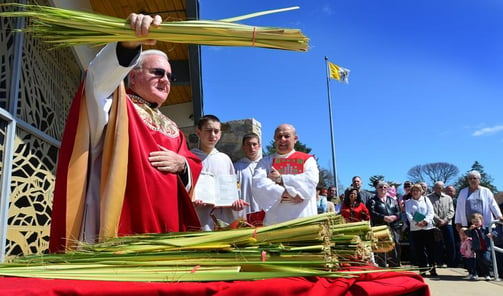

Palm Sunday Liturgy


Easter Sunday Egg Rolling Competition
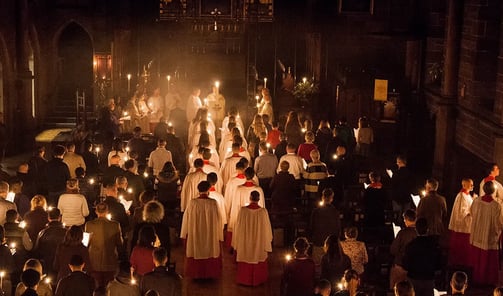

Palm Sunday Liturgy

By engaging with the Ordo, you are invited to rediscover the beauty of a structured liturgical life, one that honors the sacred traditions of the past while speaking to the needs of the present.
An Enduring Tradition of Faith
Seasonal Guidance
The liturgical year is divided into distinct seasons, and the Ordo offers comprehensive guidance for each one, ensuring that every period is celebrated with proper reverence and meaning. Whether it is Advent, Lent, Easter, or Ordinary Time, the structured instructions provided in the Ordo help the faithful to fully engage with the cyclical rhythms of our spiritual life.
Advent
The season of Advent marks the beginning of the liturgical year, characterized by a sense of anticipation and preparation for the celebration of Christ’s birth. The guidance in the Ordo for Advent focuses on entering a period of quiet reflection and hopeful waiting. It encourages believers to prepare their hearts by meditating on prophetic texts and by devoting time to prayer and penance. The carefully outlined prayers, scriptural selections, and contemplations create an atmosphere of expectant vigil—a time to cleanse the mind and spirit in readiness for the coming of the Saviour.
Lent
Lent is a season of profound introspection, marked by fasting, repentance, and spiritual renewal. The Ordo provides specific instructions during this period, offering a roadmap that helps believers to navigate the challenges of self-examination and sacrifice. Through a structured series of readings, meditations, and liturgical practices, Lent is transformed into a journey of transformation—a period when interior renewal is prioritized over worldly indulgences. The guidance emphasizes the need to confront one’s shortcomings, to seek forgiveness, and to recommit to a path of spiritual integrity. This seasonal direction not only aids in personal growth but also strengthens communal bonds, as the faithful share in the collective experience of repentance and hope.
Easter
Easter is the culmination of the liturgical cycle, representing the ultimate victory of life over death through the Resurrection of Christ. The Ordo’s direction for Easter transforms the celebration into a dynamic encounter with the living Christ. Detailed instructions for the Easter liturgies are designed to underscore the transformative power of the Resurrection. From the joyful proclamation at Mass to the triumphant adornment of altars, every element is meticulously planned to create an atmosphere of jubilation and renewed hope. This season is a time of both celebration and reflection—a moment when the faithful are invited not only to rejoice in Christ’s victory but also to experience its implications for their own lives.
Ordinary Time
Ordinary Time, though less flamboyant in its observances compared to the high seasons of Advent, Lent, and Easter, is equally important in the spiritual journey. It represents the steady, day-to-day life of faith—a time when the teachings of Christ are integrated into every aspect of our existence. The Ordo provides practical advice and meditative reflections to help believers nurture their spiritual growth during these quieter months. Rather than being seen as a period of inactivity, Ordinary Time is reframed as a continuous process of deepening one’s relationship with God through regular prayer, thoughtful reflection, and the diligent practice of faith. It is a reminder that a life of devotion is built not only on moments of extraordinary celebration but also on the persistent, humble commitment to daily worship.
In essence, the seasonal guidance offered by the Ordo transforms the liturgical year into a living journey—one that is marked by periods of anticipation, penitence, triumphant celebration, and steady growth. Each season comes with its own set of instructions and thematic reflections, ensuring that every phase is observed with a spirit of reverence, intentionality, and holistic spiritual engagement.
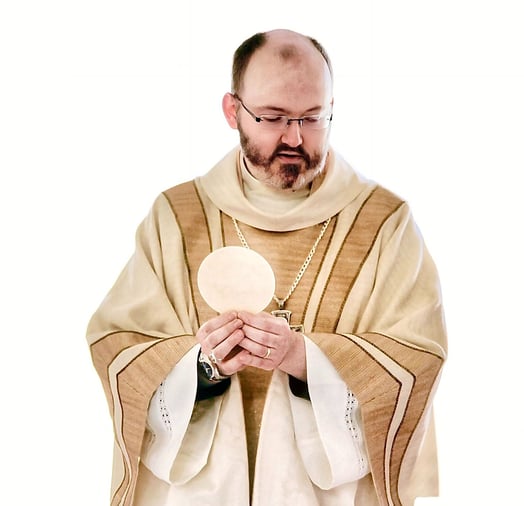

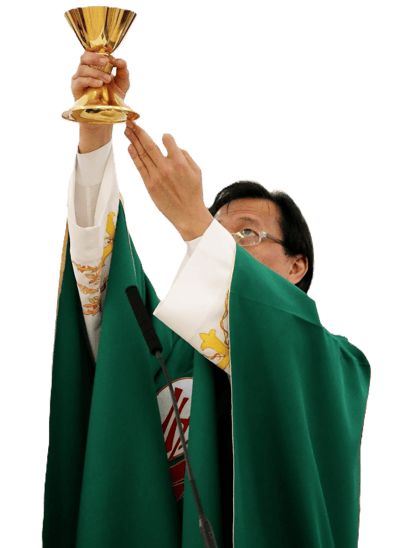

Easter Liturgy
Ordinary Time Liturgy
Liturgy and the Sacraments
Baptism stands as the cornerstone of the Christian journey, an initiation into the sacred mystery of divine grace. This sacrament embodies the cleansing of original sin and the rebirth of an individual into the community of faithful believers. Its ritual of immersion in or sprinkling with water signifies not only the washing away of the past but also the invitation to live a renewed life in Christ. The luminous symbolism of water serves as a reminder of the transformative power of God’s love and grace.
Embedded within the liturgical seasons, Baptism is celebrated with both profound joy and solemn reverence, aligning the individual experience with the Church’s broader spiritual rhythm. The detailed Sacramental Notes provided by the Ordo honour the depth of tradition while also highlighting the sacraments’ dynamic presence in modern liturgy. In this sacred ritual, each gesture and word is imbued with meaning, invoking the Holy Trinity and reinforcing the continuous thread that connects the past, present, and future of the Church.
Baptism is more than an initiation; it is a profound encounter with the divine mystery, a call to a simpler and purer life, and a foundation upon which all other sacraments build. Through Baptism, individuals are invited into a lifelong journey of faith, guided by the enduring principles of hope, redemption, and divine love. In embracing this sacrament, the faithful renew their commitment to living a life nurtured by grace, continually seeking to echo the eternal call of Christ through every season of their spiritual odyssey.
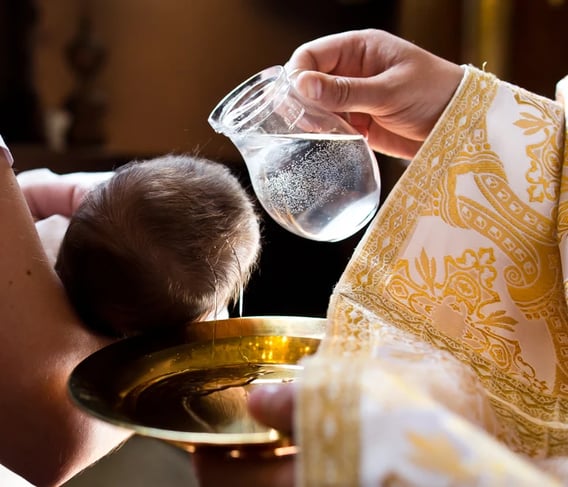

Baptism
Confirmation
Confirmation stands as a vital sacrament of mature conversion, a moment when believers fully embrace the gifts of the Holy Spirit. This sacred rite builds upon the foundation laid by Baptism and transforms a personal commitment into a lived experience of divine empowerment. Through the laying on of hands and anointing with chrism, Confirmation fortifies the soul with courage, wisdom, and spiritual insight. In its rich symbolism, the sacrament ignites a renewed sense of purpose, inviting the faithful to become active participants in the ongoing mission of the Church.
The liturgical notes provided by the Ordo guide the celebrant in a ritual that resonates with historical depth while speaking to contemporary hearts. At the core of Confirmation lies a profound call to live authentically and courageously in the light of Christ’s teachings. This sacrament marks a transition from the innocence of childhood faith to an active, mature witness, one who is entrusted with both responsibility and grace. The profound imprints of the Holy Spirit, received during Confirmation, inspire a lifelong journey of spiritual growth and service to others.
Every gesture and prayer during the rite reflects an enduring dialogue between the divine and the human, echoing the timeless truth of God’s unwavering love for all. With Confirmation, believers are reminded of their diverse gifts and called to use them wisely in building a community anchored in hope, justice, and mercy. Their unwavering commitment deepens as the sacrament gracefully unfolds in prayer, quiet reflection, and a shared sense of divine calling.
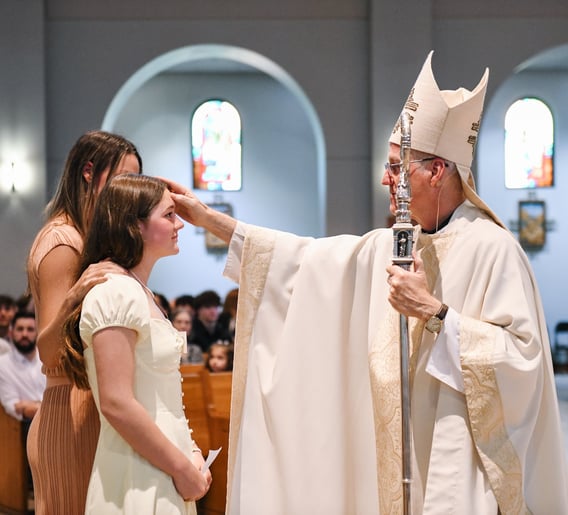

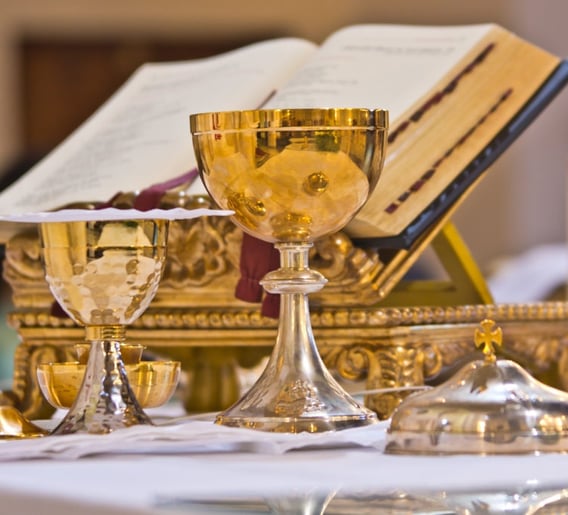

The Eucharist
The Eucharist stands as the living memorial of Christ’s sacrifice, embodying the mystery of divine sustenance and unity. In this sacred rite, bread and wine are transformed into the Body and Blood of the Saviour, inviting believers to share in the eternal covenant of grace. It is a celebration that unites the community of faith, fostering a deep sense of belonging and spiritual nourishment. Rooted in historical tradition and enlivened by contemporary devotion, the Eucharist is celebrated with both solemnity and joy during liturgical seasons.
The rich symbolism of this sacrament draws believers into an intimate encounter with the mysteries of faith and divine love. The guidance provided by the Sacramental Notes from the Ordo reinforces the connection between ancient practice and present-day worship, ensuring that the ritual stays vibrant and deeply meaningful. Each consecrated element carries the promise of transformation, reminding the faithful of the continual presence of Christ in their lives.
The act of partaking in the Eucharist renews the spiritual strength of the community and the commitment of individuals to live according to divine teachings. As a bridge between heaven and earth, the Eucharist calls upon all who receive it to embrace the virtues of charity, humility, and mercy. Through every celebration, the mystery of the Eucharist offers hope, resilience, and the assurance of everlasting grace to all. With each sacred observance, the community is invited to deepen its relationship with Christ, forging bonds that transcend time and space. The Eucharist unites all hearts in divine grace.
Reconciliation stands as a powerful sacrament of healing and forgiveness, starting a personal journey toward spiritual renewal. Rooted in the merciful love of God, this rite invites the faithful to confront their shortcomings with humility and trust in divine grace. The sacrament offers a structured opportunity for reflection, confession, and the sincere desire to amend one’s life.
Through honest dialogue with a priest acting in the person of Christ, the penitent experiences the transformative power of absolution. The liturgical guidance embedded in the Ordo ensures that this sacred encounter remains both profound and tender, reflecting the Church’s enduring commitment to mercy. Confession is not merely a ritual act but a sincere expression of contrition and an embrace of God’s healing mercy. In confessing one’s sins, the faithful are relieved of the burden of guilt and invited to rediscover the light of divine love.
This sacrament, vibrant in its historical roots and contemporary relevance, calls for a renewal of the inner self through repentance and divine forgiveness. The encounter in Reconciliation renews hope and reaffirms the believer’s journey towards a life transformed by God’s love. By accepting Reconciliation, the penitent is granted the serenity to move forward, free from the shadows of past transgressions. Each sincere confession carves a path towards inner peace and a deepened understanding of God’s unconditional mercy. In the grace of Reconciliation, the believer finds hope renewed and a spirit unburdened by sin. This sacred rite restores the soul in a genuine encounter with divine compassion.
Reconciliation
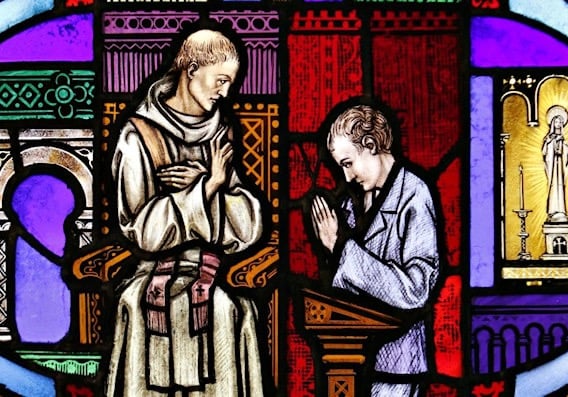

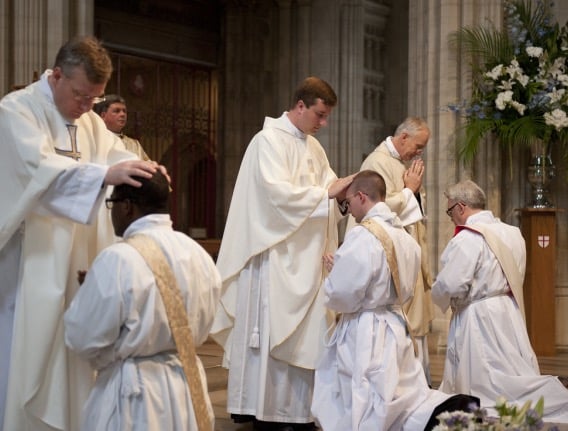

Anointing of the Sick, historically known as Extreme Unction, is a profound sacrament that brings comfort and spiritual healing to those facing the trials of illness. Rooted in the compassionate ministry of Christ, this rite is offered to individuals in need of divine consolation during times of physical and emotional distress. The sacrament calls the Church to minister to the suffering with empathy, reinforcing the belief that no soul is abandoned in its time of need. Through the sacred act of anointing with oil, the faithful witness a tangible expression of God’s mercy and the promise of restoration.
The Ordo provides detailed Sacramental Notes that align this rite with the natural rhythms of the liturgical calendar, ensuring that each celebration embraces both tradition and renewal. The sacrament offers not only physical relief but also an invitation to spiritual introspection and the deep reassurance of divine love. In moments of frailty, the anointing serves as a reminder that healing transcends the mere physical, reaching into the very core of human dignity and hope. It instills courage in the hearts of those who struggle with pain, fostering an environment where vulnerability is met with compassion and spiritual support.
With this sacrament, the Church affirms its commitment to accompany the suffering, guiding them toward a future illuminated by hope and redemption. It is a solemn affirmation that no moment of illness is isolated from the boundless compassion of God. This sacred sacrament invariably invites an enduring encounter with divine grace, even amid mortality.
Anointing of the Sick
Holy Orders is a sacrament that consecrates individuals for a life of service and leadership within the Church. This sacred ordinance marks the call to ministerial vocation and equips the ordained with spiritual authority. Rooted in the longstanding tradition of apostolic succession, Holy Orders affirms the continuity of Christ’s mission on earth. Through the laying on of hands, those called to serve are imbued with the Holy Spirit, empowering them to shepherd the faithful.
The sacrament underscores the serious commitment of the ordained to uphold and transmit the sacred teachings of the Church. Liturgical guidance from the Ordo ensures that every ordination ceremony faithfully reflects both ancient rituals and contemporary pastoral needs. Those who receive Holy Orders are called to a life of sacrifice, humility, and unwavering service in the name of Christ. This sacrament not only sanctifies the individual but also reinforces the bonds between the clergy and the broader community of believers.
The celebration of Holy Orders is imbued with solemnity, joy, and the anticipation of a life dedicated to advancing the Kingdom of God. It is a profound rite that inspires the ordained to lead lives marked by faith, service, and a deep sense of responsibility. Through ordinary and extraordinary challenges, Holy Orders is still a beacon of hope and a testament to the transformative power of divine calling. The ordained commit themselves wholeheartedly to a vocation that transcends personal ambition, becoming true servants of Christ. Holy Orders lights a hopeful path of renewal, discipline, and sacred service.
Holy Orders
Matrimony is a sacred covenant that unites two souls in a lifelong journey of love, commitment, and mutual sanctification. This sacrament celebrates the profound mystery of union, reflecting the divine relationship between Christ and the Church. Rooted in timeless tradition and enriched by contemporary insights, Matrimony is both a personal and communal affirmation of faith. The Ordo’s Sacramental Notes ensure that every wedding rite resonates with both the solemnity of age-old customs and the vibrancy of modern celebration. In Matrimony, love is not only a feeling but also a conscious choice to mirror the selfless love exemplified by Christ.
This covenant calls for open-hearted communication, mutual respect, and a shared commitment to nurture both individual growth and joint flourishing. The sacrament of Matrimony transforms daily life into a celebration of unity, inspiring couples to overcome challenges with grace and resilience. By entering this covenant, partners commit not only to a shared future but also to a sacred ministry of love that enriches the entire community.
The beauty of Matrimony lies in its ability to merge two distinct lives into one harmonious journey guided by mutual devotion. It is a celebration of not only romantic love but also a commitment to build a future rooted in faith, hope, and divine grace. In the union of Matrimony, everyday moments become infused with sacred meaning and the promise of eternal companionship. This sacrament is a testament to the transformative power of love, inspiring lives to reach toward divine unity. Love endures forever always.
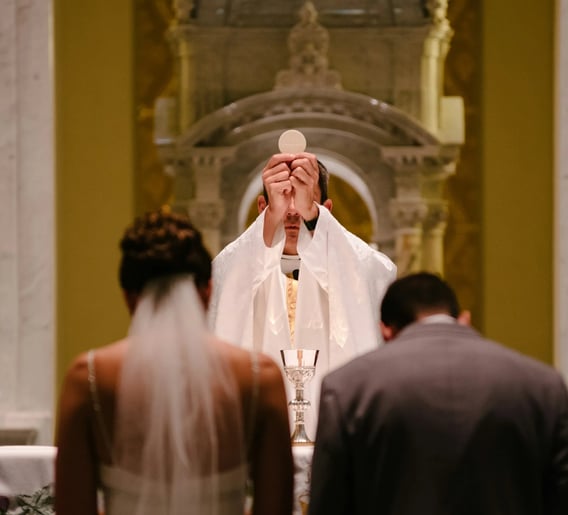

Matrimony
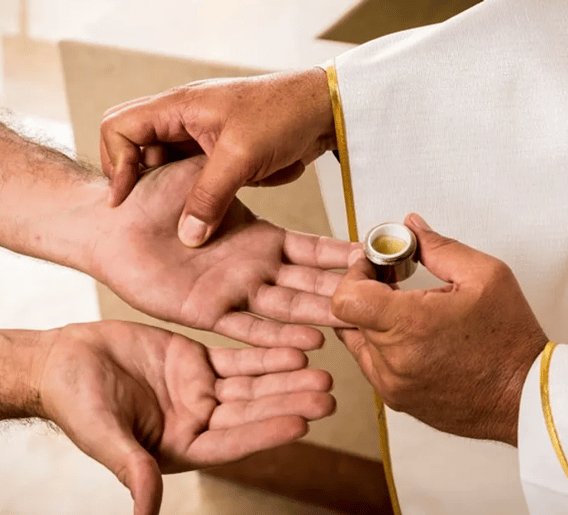

Embracing a Living Tradition
The comprehensive structure provided by the Ordo seamlessly integrates daily devotion, seasonal celebrations, sacramental rites, and symbolic expressions into one cohesive framework. It does not merely instruct; it invites the faithful to enter into a living, breathing tradition—a tradition that has been tested by time and continues to evolve in its expression of reverence.
Every element of the Ordo is designed to foster a sense of unity within the community. By following the guidelines for daily readings, special observances, seasonal instructions, sacramental practices, and liturgical colors, every member of the congregation is invited to participate in a collective expression of faith.
This solidarity, stemming from shared practice and common understanding, reinforces the idea that the Church is not a static institution but rather a vibrant community united by its liturgical life and commitment to the teachings of Christ.
The beauty of the Ordo lies in its inclusiveness. Whether you are a lifelong member of the community or a newcomer seeking a deeper spiritual connection, the structure it provides is accessible and deeply meaningful. It serves as both a roadmap and a source of inspiration in your ongoing journey of faith. By anchoring your daily routine in these ancient practices, you become part of a continuum—a lineage of belief that spans generations and transcends time.
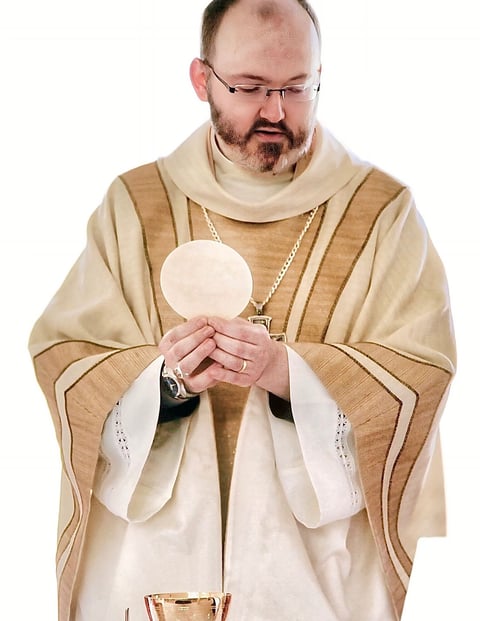

Learning with a Sacramental Church
Fostering faith, inclusion, and compassionate service within a vibrant community and beyond.
Creeds
The Nicene Creed & Apostles' Creed are are living expressions of the Church’s faith. They serve both as historical anchors and as vital components of today’s liturgy and pastoral life.
Ordo
Rooted in the church’s rich heritage & deep commitment to spiritual growth, the Ordo serves as a liturgical roadmap, fostering unity, devotion, and understanding.
Ecumenism: the journey towards unity among all Christians and mutual understanding with people of other faith traditions.
Ecumenical
Camaldolese Life
Contemplative Prayer
God in Nature
The Camaldolese Hermitage at Big Sur welcomes all who feel called to integrate the contemplative and monastic spirit into the fullness of everyday life.
The Hermetical Order of the Camaldolese warmly invites prospective aspirants—especially those engaged in full-time work—to experience a condensed two-week immersion into our way of life.
This is the invitation of the Ancient Catholic Church: to step beyond our everyday confines and encounter the divine where it has always resided—in the very fabric of creation.
Liturgical Calendar
Peace & Reconciliation
Homilies & Reflections
Cyclical journey through the seasons, solemnities, feasts, and memorials of the Church, uniting believers in prayer and worship. It serves as a spiritual compass, guiding our days, weeks, and months towards a deeper communion with God.
Rooted in scripture, Catholic teaching, dogma, and theology, our programme upholds the belief that forgiveness and mutual understanding are essential pathways to healing both individual hearts and the broader human family.
Explore and engage with the teaching of the church. Each homily is carefully chosen and curated to produce an accessible online library of teaching on scripture, dogma and theology. All our clergy are able to contribute to this growing resource.
Ancient Catholic Church
Embracing faith, inclusion, and compassionate service together.
ST THOMAS AQUINAS SEMINARY
© 2025. All rights reserved.
QUICK LINKS
